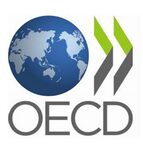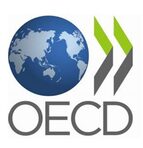|
On April 25, 2022, the OECD held a public consultation meeting on the Implementation Framework of the global minimum tax.
The meeting discussed the input provided and consider the mechanisms to put in place in order to ensure that tax administrations and MNEs can implement and apply the Global Anti-Base Erosion (GloBE) Rules in a consistent and co-ordinated manner. Following the release of the GloBE Rules as part of a landmark agreement on a two-pillar solution and the related Commentary, the OECD/G20 Inclusive Framework on BEPS is developing an Implementation Framework to support tax authorities in the implementation and administration of the GloBE Rules. See Announcement Cameroon has deposited its instrument of ratification for the Multilateral Convention to Implement Tax Treaty Related Measures to Prevent Base Erosion and Profit Shifting (BEPS Convention).
The Convention will enter into force on August 1, 2022, for Cameroon. The Convention now covers over 1820 bilateral tax treaties, thus underlining their strong commitment to prevent the abuse of tax treaties and BEPS by multinational enterprises. The OECD has released, as part of its work on BEPS Action 14, the Stage 2 peer review monitoring reports for Andorra, Bahamas, Bermuda, British Virgin Islands, Cayman Islands, Faroe Islands, Macau (China), Morocco and Tunisia.
These reports evaluate the progress made by these nine jurisdictions in implementing the recommendations resulting from their Stage 1 peer review. They take into account any developments in the period of 1 September 2019 – 30 April 2021 and build on the Mutual Agreement Procedure (MAP) statistics for 2016-2020. See Announcement The Swiss tax authority has published withholding tax rates for treaty countries.
The rates have been published for Albania, Belarus, Belgium, the Czech Republic, Croatia, Denmark, Finland, Hungary, Iceland, Latvia, Lithuania, Luxembourg, Moldova, Montenegro, the Netherlands, North Macedonia, Norway, Poland, Romania, Russia, Serbia, the Slovak Republic, Slovenia and Sweden. The rates are available on the tax authority’s website. See Release On April 12, 2022, the OECD and Brazil's Receita Federal (RFB) held a joint high-level to present the key features of Brazil’s proposed new transfer pricing system.
The outcome of the joint project between OECD and RFB will be a new transfer pricing framework for Brazil, aligned to the OECD standard. In welcoming this important step forward, Paulo Guedes, Brazil’s Finance Minister noted: “As we successfully converge with the OECD standard, we are not only celebrating a key step forward but also addressing two main challenges: the harm of excessive taxation and double taxation that prevent investments; and the damage of tax avoidance through the transfer of profits to locations providing for a more favorable taxation. This is fundamental because it allows us to gain in efficiency, with effective allocation of investments across this global community that is embracing itself through the convergence of these practices.” See Announcement The OECD is seeking public comments on the Extractives Exclusion under Amount A of Pillar One.
The Extractives Exclusion will exclude from the scope of Amount A the profits from Extractive Activities. The exclusion applies where a Group derives revenue from the exploitation of Extractive Products and the Group has carried out the relevant Exploration, Development or Extraction. This approach reflects the policy goal of excluding the economic rents generated from location-specific extractive resources that should only be taxed in the source jurisdiction, while not undermining the comprehensive scope by limiting the exclusion in respect of profits generated from activities taking place beyond the source jurisdiction, or later in the production and manufacturing chain. See Announcement India's Central Board of Direct Taxes has entered into 62 Advance Pricing Agreements (APAs) in FY 2021-22 with Indian taxpayers.
This includes 13 Bilateral APAs (consequent to Mutual Agreement between India and its treaty partners) and 49 Unilateral APAs. With this, the total number of APAs since inception of the APA program has gone up to 421. See Announcement Oman has published detailed guidance on the implementation of the country’s country-by-country reporting requirement.
The guidance is aimed at enabling easy compliance with the CbC reporting rules and completing the template for reporting Multinational Enterprise’s (MNE) group allocation of income, taxes and business activities on a tax jurisdiction-by-tax jurisdiction basis. The guidance includes a detailed description on the preparation and submission of CbC reports. |
Archives
March 2024
|
COMTAX ABC/o Ekonomiforetaget Baehring Dahl AB
Berga Alle 3 25452 Helsingborg Sweden |
CONTACTTel.: +46 46 590 07 70
E-mail: support(@)comtaxit.com |
INFORMATION |
© COPYRIGHT 1985 - 2024 COMTAX AB. ALL RIGHTS RESERVED.






